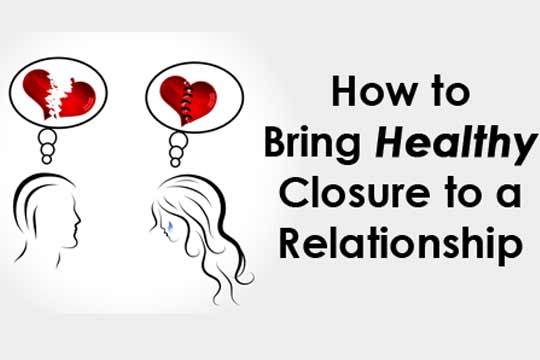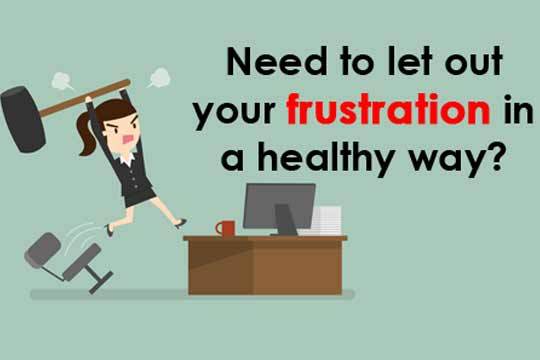Helene Lerner's Blog, page 4
July 29, 2016
5 Lessons Your Single Mom Taught You

It may not be the “typical” family dynamic, but single moms have become a huge sector of the population. It certainly is not an ideal situation, by any means, but it made both you and her stronger people. Maybe you resented the fact you had no father at some points in your life, but you knew there was always at least one person counting on you and loving you with all her heart. If you have a single mother, you can surely recognize these invaluable lessons you learned from her:
Don’t let others steal your joy: No matter how upset you might be because of what someone said about you or how they treated you, don’t stay down--rise above the disappointment. She had her share of negativity thrust in her path, but in the end, she came out stronger. Only you can control your happiness, so don’t give that power away to someone else.
Be independent: It’s so important to be able to hold your own as a woman. It’s all about being able to get through each day, often without the credit you deserve. Your mom is a living lesson of an independent woman who doesn’t have to rely on outside approval to feel good about herself--she’s tough as nails. But at the same time, she teaches you to be gentle and caring. Balancing strength and sensitivity isn’t easy, but it’s a priceless lesson to keep in mind as you go through life.
Love yourself: First and foremost, be able to love yourself for the good and the bad. You might have insecurities, but so does everyone else. She taught you to love yourself unconditionally and learn from the mistakes you’ve made. She told you that everything happens for a reason, so let go of what didn’t work out and don’t beat yourself up for it.
Live with no regrets: The past is in the past, nothing we can do can change that. She is an example of persevering when things didn’t go her way. She had to focus on the present and the future. Take comfort in knowing that each day can start with a clean slate.
Always have hope: Life isn’t fair. Instead of being bogged down by mistakes and misfortunes of the past, keep your focus ahead. There were probably many times when she felt that all hope was lost. Instead of being a victim, she turned her thinking around to become a warrior, and shows that you can be one, too.
“Strong women don’t play victim, don’t make themselves look pitiful, and don’t point fingers. They stand and they deal.”-Mandy Hale
*Many of these lessons are not exclusive to single mothers
- Barbara Bent
Habits of Deceitful People (and how to steer clear of them)

Deceit is like a lie, but it’s trickier. A deceiver often has an elaborate plan to mislead and falsely persuade you. The worst part is that such deception can be hard to spot. Look out for these telltale signs to catch them red-handed:
“Microexpressions”: These subtle clues, according to the FBI, are “fleeting expressions of concealed emotion, sometimes so fast that they happen in the blink of an eye--as fast as one-fifteenth of a second. This results from the individual’s attempt to hide them.” But you don’t have to be an FBI agent to make use of these nonverbal cues. So the next time you feel like you’re being duped, look closely for a slight strain in their smile or when they cast their eyes to the ground. The FBI website also said, “facial expressions of emotion are the closest thing humans have to a universal language.”
On the defense: A deceiver is likely to get defensive when they’re lying to you. They may avert their gaze or cross their arms in a conversation. These physical signs of defense are their ways of protecting themselves when they know they could be caught in a lie.
They “fluff” the conversation: The person might use repetitive statements. This way, they can waste time while their mind churns to come up with their next lie. Another small but telling hint is when they avoid using contractions like, “can’t” and instead use, “cannot,” just to buy time.
Here’s what you can do to steer clear of deception:
Analyze their countenance: Are they nervous or angry? Do they seem distracted? Take their normal behavior into consideration--are they acting differently than they usually do?
Keep asking questions: Throw them off guard by asking very detailed, specific questions. Can they keep up?
Be aware of contempt and know when to walk away: When someone realizes you’re a target for deception, their behavior can turn into contempt. By definition, they feel that you’re “beneath consideration” and don’t deserve respect. Pamela Meyer, a certified fraud examiner, says, “contempt is the ultimate red flag. When someone is angry at you, you’ve still got traction with them, but when they display contempt, you’ve been dismissed. It’s a poisonous emotion, especially when paired with deception. Once someone shows it, it rarely goes away.” At this point, know to keep this person at a distance to avoid further deception.
- Barbara Bent
How to Bring Healthy Closure to a Relationship

When a relationship ends, people often find comfort in closure. However, we can harbor feelings of anger, pain, and sadness instead of peacefully coming to terms with what has happened. Sometimes, you’re able to negotiate that closure with your partner. Other times, you don’t get that chance, and have to find closure within your heart and mind. Here are helpful tips to guide you through both of these tough situations:
Finding closure with a partner
Communicate honestly: To make any change, you’ll have to be honest with your partner and tell them, face-to-face, exactly how you feel and why you think things are not working. Remind each other of the positive parts of your relationship.
Don’t place blame: Be careful to express your emotions in a way that you’re not blaming one another for pain in the relationship. Keep your conversation focused and calm. If not, you could regret something you said down the road.
Search for “mutual benefit”: Dr. Jeremy Nicholson, a social and personality psychologist, says, “Even in a breakup, relationships are still a social exchange, and there is still the possibility of mutual benefit. Therefore, at the end of a relationship, it is still important to focus on where you can meet both your needs and those of your partner.”
Finding closure within yourself*
Grieve: Ending a relationship is a loss. You need time to be sad and feel the pain before you move on. Dr. Abigail Brenner, a psychiatrist, says “Prolonged or incomplete grief may contribute to making poor choices in the future. The ability to trust, to be honest, and to be yourself is essential for a new, healthier relationship or situation to present itself to you.”
Acknowledge and accept what’s happened: Have a conversation with yourself--ask what you are holding on to, and why? Is this pain consuming you and preventing you from accomplishing what you want in life? What do you think will happen if you move on and let go? These are the kinds of questions that clear our minds and motivate us to find something better down the road.
Make a game plan: Write down what’s most important for you to do right now. Staying organized in this visual way will help as you pave your path into the future. Dr. Brenner suggests, “Shift the emphasis to what you need, what makes you happy. Don’t worry about pleasing others.”
*Some of these steps need to happen even if you are finding closure with your partner
- Barbara Bent
July 28, 2016
5 Tips to Manage Your Frustration at Work

Your co-workers are loud. You seem to know more than your manager. You are constantly being called in for your expertise, yet your boss gives you a minuscule raise after you waited three years for it. Your company seems to relish meetings more than getting the real work done. Some of your colleagues fail to perform their job responsibilities and keep getting away with it. These are just some of the many things that can cause your level of annoyance to reach an all-time high at work. When you find yourself in this situation, here are a few tips to help you manage your frustration:
Take a moment and breath: While there is an entire scientific reason behind the power of this strategy, what you need to know is that this strategy is tied directly into your body's relaxation response. Taking a deep breath will slow you down and calm you down, so that you can decide how to proceed with a clear mind.
Assess and evaluate: After you calm down, it's important to reflect on the cause of the frustration. Is your frustration stemming from a re-occurring pattern? Is this pattern something that should be addressed? Could it be that your patience is low because you're hungry or tired? Are you moving too quickly to blame others without looking at your role in the problem? These are some of the questions you can ask yourself to gain a clearer understanding of what is triggering your feelings of frustration.
Shift your perspective: When you change your story, you can manage the situation. So, it may be time to think about whether you are feeding yourself a story that is undermining your well-being at work. This is also a time to consider the bigger picture. Ask yourself if it's possible that you're getting caught up in the small stuff instead of holding onto your vision of what you want in your career. Take some time to also consider what is positive and right at work.
Get yourself out of the situation: Sometimes, the best solution to a problem is the simplest. Before you blow your cool, go for a walk even if it's to the coffee machine or the water cooler. Find a way to get yourself out of a frustrating situation if you feel like you are going to lose control. In the best scenarios, you can escape to the restroom or step out of the building for a brief stroll. Like taking a deep breath, this strategy gives you some time to calm down, consider your options, and make a healthy choice.
Advocate for yourself: You've tried breathing huge gusts of air and played at your greatest imitation of a Zen Monk, and still, you keep having the same grievance. While this may challenging at first and requires courage, this is a time to advocate for change. What other options lay at your disposal? Can you switch your role? Do you need to have a difficult conversation with a co-worker? Give some thought to what you need and then share those ideas with a positive approach.
- Cynthia Santiago, empowerment coach and founder of Latina Wellness
July 27, 2016
6 Ways to Leave a Bad Relationship

At some point in our lives, many of us have found ourselves stuck in a relationship that failed to meet our needs, and yet, we found it hard to walk away from the person who caused more drama than joy. For any number of reasons including the delicate nature of our self-esteem, leaving a bad relationship can be quite challenging. Even so, there are ways to move on that can leave you feeling empowered with a sense of self-love, instead of feeling like you've just been run over by a truck. Here are some empowering ways you can walk out the door with your head held high:
Envision your dream relationship: We all have ideas about what we want in a relationship. Think about all of the hours you’ve spent daydreaming about your ideal partner, and all of the adventures you would share. Now compare that dream to what is currently happening in your relationship. Is your reality anywhere close to your dream? If not, then you need to consider getting on with your life, so that your dream person will find you single and ready to enjoy their company.
Stop rationalizing the other person’s poor behavior: When we're in a relationship, it can be hard to face the truth about the other person's treatment towards us. Our natural tendency is to find excuses for their behavior. Stop justifying your partner's poor behavior. Get honest about what is occurring, and ask yourself if you want to continue in a relationship where you're being mistreated or where your desires are not being met.
Create a plan for your exit: Once you have decided to leave the relationship, give some thought to how you want to leave and implement a strategy for your departure. Like all other areas of our lives, the better prepared we are, the more likely we are to succeed at our goal.
Stand in your integrity: Nobody said leaving would feel good. In fact, saying goodbye to someone you care about or love is incredibly difficult. Nonetheless, you deserve to have the relationship you want, and that means you have to stand firm in your choice. Practice compassion and forgiveness, and establish your parameters of how you will behave and operate, even if the other person is angry or spiteful.
Gather with your tribe: It can be easy to isolate yourself if you are sad or depressed about the break-up, but that is the worst thing you can do. Instead, gather with your entrusted friends, talk and spend time with them. Engage in activities that help you feel good and bring you joy, even if you feel like you're just going through the motions. This will benefit you during the painful transition time after the relationship has ended.
Give yourself time: Even when you leave a relationship empowered, knowing it was the right thing to do, you may still be heartbroken. Don't pretend you're not in pain and don't try to numb yourself. Instead, this an opportunity to take care of yourself, be compassionate and loving with yourself, and allow yourself the time you need to mourn your loss. Give yourself time.
- Cynthia Santiago, empowerment coach and founder of Latina Wellness
4 Ways to Deal with a Nasty Co-worker

Work can be stressful. Between deadlines, budgets, bosses, and projects, the last thing anyone needs is a nasty coworker. Follow these strategies to gain control of the situation and find some peace.
1. Get an outside opinion. Talk to a neutral and removed source. Explain the situation, and troubleshoot your interactions with your coworker. Is there anything you said or did (or didn't say or do) to contribute to the problem? Having someone look at the situation who isn't connected to your workplace will provide needed insight and clarity. If necessary, own your part of the problem, and decide what can be done about it.
2. Create space and stand up for yourself. Allow some time to pass before confronting your coworker. If possible, schedule a time to chat. If they refuse, you may need to catch them during one of their free moments. Calmly and professionally explain what you have noticed, how you want things to improve, and offer an apology if needed.
3. Wish them well. Throughout the process, and especially if they remain hostile after confrontation, it is crucial for your peace of mind to wish them well. It only brings you down to harbor anger and hostility towards them. One practice you can implement whenever you are hurt by someone is to repeat the phrase "may I be safe, happy, and live with ease and peace" and then extend the same wishes to your offender, "may you be safe, happy, and live with ease and peace." Close your eyes and repeat the phrase a few times. Then let go. It's amazing what these words can do for your peace of mind.
4. Be professional and respectful. In all your interactions, choose to stand on higher ground. Remember that you are in the workplace, and treat them with professionalism and respect even if you do not receive it in return. You want those around you including your boss to see your best self, not you giving your power away to someone angry and hurting.
Finally, smile to yourself as you remember this quote by Eric Hoffer: "Rudeness is the weak person's imitation of strength." As for you, you are the one acting truly strong!
- Jennie Swenson, Parent Educator and Positive Youth Development Specialist
July 26, 2016
How to Deal with Someone Who’s Overly Needy

The biggest way we show our friends that we care is by being there for them in a crisis. To make yourself available for someone in their time of need is important. But we can’t always be a shoulder to cry on. After all, we have our own lives, jobs, and families to look after as well. Is what they’re asking of you too much? When you find yourself with someone who is overly needy, it’s tough to come up with a solution. You don’t want to hurt their feelings, but you need them to understand they can’t depend on you for everything. So what can you do?
Let them know you care. This might sound like a no-brainer, but it’s effective. Tell that person how much they mean to you and how you hate to see them upset. Be sure to remind them of all you’ve done for them in the past (even name specific incidences), so that they know you’ve really been a true friend. This way, you’ll have solid evidence that you’re supportive and truly care about their well-being. This is important for the next steps.
Recognize when it’s too much. Sometimes, even after you communicate clearly about what you can and can’t offer that person, there’s no change. Or, it changes for the worst, they are angry at you and break off the relationship. Recognize that you are helping them by being direct. If you aren’t, you become an enabler. Andrea Bonior, an adjunct psychology professor at Georgetown University and author of “The Friendship Fix” encourages you to ask, “Are you helping the person sort of get on the path toward change, or are you just beating your head against a brick wall because they’re not doing anything about it?...at that point, it’s just a matter of being honest and setting boundaries.” You may not get positive feedback, but know that you have to do this for your (and even their) own good.
Set boundaries. If you are always trying to make that person feel better, you may start to feel isolated. Maybe you’re neglecting friends or your partner because you’re giving too much time to this one person. Before long, you will start to resent your friend. Figure out how much time you can actually give them and communicate that. Be honest and say that you simply can’t offer as much as they require. Suggest alternatives. If necessary, help them clarify what they need. Let them know you believe in them and have faith that they will work things out.
- Barbara Bent
5 Signs Your Boss Isn’t Trustworthy (and what you can do about it)

We want to trust our bosses. They’re supposed to be the ones who guide us through our work — people we can turn to when things get tough and we don’t know what to do. Unfortunately, not all bosses are people that we can rely on. Here are five signs your boss isn’t a good one — and what you should do about it.
1. You hear them talking badly about other workers in the office. This means they’re probably talking behind your back, too. If your boss is willing to say stuff about other coworkers, either within your earshot or to your face, it means they probably won’t hesitate to do the same to you and others. This shows that they obviously don’t care about anything you’ve told them in confidence, or about the feelings of their workers.
At the very least, make sure you don’t tell your boss anything that you don’t want everyone in the office to know about yourself. Try to find other people to ask your work questions if you’re having trouble with something. You definitely want to avoid giving them anything that can be shared with someone else. Also, don’t indulge in his gossip. If they try to get you in on the badmouthing, switch the topic.
2. They take credit for work that you or other workers did. You want to feel honored when your boss assigns you to a special project. Then you get to the day of the presentation and the boss makes no mention of you or any of the other people who put work into it.
Unfortunately, there’s nothing you can do right then. But now you have to have a plan for the next time they try to do that. Keep a little bit of your extra facts and research to yourself and make sure you pipe up with those during the meeting or presentation. This way, people will look to you as an expert on the topic.
Also, be careful how you bring up new ideas and work with your boss. If you bring it up in front of a bigger group, they’re less likely to take credit for your ideas.
3. They leave out important information or outright lie. For example: you go into a meeting and your boss specifically says it isn’t a disciplinary one — only for you to later find out that it is. Or they don’t tell you that all of your higher-ups are going to be doing an audit of the store that day.
Make sure you have a paper trail documenting any of these instances — out of reach of your boss, of course. Some of these things could toe the line of being considered lying or just being sneaky (the latter is still within their rights), but if it’s something serious that happens often, you’ll want a log.
If things are bad enough and you’re willing to put your job on the line, take it to HR or your boss’ boss.
4. They make you feel uncomfortable. Sexual harassment in the workplace happens way more often than it should. And it might be difficult for you to establish if it’s really harassment. If you’re seriously uncomfortable being alone with your boss, it’s a problem.
Document everything you can and be as specific as possible. Your job may be on the line for reporting this to HR, but you don’t know how many other people have been affected. It’s important that this gets reported.
5. They keep promising promotions — and never give them. Nothing is worse than getting excited for a promotion and then never getting it. This is another thing you need to make a specific log of. Include dates, times and the exact wording they used. They may say things about changing your title and not actually mean a raise. Have a difficult meeting with them and say exactly what you expect from what they said to you. Don’t take this sitting down — stand up for yourself.
Dealing with an untrustworthy boss is hard, but you have to take action and make things right. If it gets bad enough, it’s time to switch jobs. No job is worth dealing with an absolutely horrible boss.
Sarah Landrum is the founder of Punched Clocks, a site dedicated tosharing advice on all things career. Follow her on Twitter@SarahLandrum for more great tips!
July 25, 2016
How to Take Care of Yourself at Work

The challenges that come along with that climb up the corporate ladder are higher than ever. Demand and competition coupled with a technological work culture that never turns off are creating a stressed and ill workforce. Considering how many hours we can spend working, it is important that we implement self-care practices to keep us healthy and thriving. Many of your self-care practices may take place before work or after work, but here are some simple strategies you can follow while you're on your grind:
Take breaks: There is a huge myth orbiting the workforce that suggests that you are most productive if you just keep plowing through your work, and, nothing could be further from the truth. In fact, our brains work best when we give it time to go into "diffuse mode," which is a relaxed state. Have you ever had that experience of intentionally taking your mind off a problem or trying to remember something and suddenly the solution or the answer pops into your mind? That is the result of placing your brain in "diffuse mode," which allowed you to find solutions to problems or come up with new insights. So, even when you are working to meet a deadline or have your head down in a project, make sure you set a timer and take a break from your work at intervals of 60 to 90 minutes. During this time, make sure you get up from your desk and take a few moments to stretch your body and move around.
Set boundaries: The first time you have to say no at work can be quite difficult. For example, suddenly your boss asks you to come to work on your scheduled day off. Implementing a boundary you established for yourself will require you to politely tell her that you while you would love to help, you already scheduled the day off and will not be able to make it into work that day. Initially, this can feel weird or be tricky especially if you worry that this will have a negative impact or that you will not be seen as a team player; however, when you set boundaries you also send a clear message about your self-worth and value.
Hydrate and rejuvenate: Does this seem like an obvious one? Yet, so many people get so caught up in their work, they forget to drink enough water, and that means 6 to 8 glasses a day. What many people don't know is that symptoms of dehydration include a feeling of sluggishness and a loss of concentration. So, making sure you stay hydrated can actually help your work performance and keep you feeling rejuvenated while you work.
Mindful lunchtime: It's amazing how much work culture has moved away from taking the time to eat a hearty, healthy meal. What you often find in today's workforce is employees sitting at their desks mindlessly chowing down their food. Eating a healthy meal in the middle of your work day will have a lasting positive effect on your productivity for the remainder of that day. But, it is also vitally important that you focus in on this meal. Do not eat at your desk and do not tap into technology. Take this time to decompress, enjoy the flavors of your food, and use this as a time to fully relax.
Create regular check-ins: One avenue of self-care that is overlooked in the professional world is the need for feedback and growth. Engaging in consistent opportunities to learn and improve your performance with a trusted manager or mentor can provide you with a sense of growth and purpose in your work. Making this a regular practice can also help you avoid any potential problems before they even start.
- Cynthia Santiago, empowerment coach and founder of Latina Wellness
How to Get Close to Someone When You’re Afraid to Let Them In

Most of us have a fear of intimacy. It is scary getting close to someone else. You might wonder what would happen if you express how much you care about them. So how do we face our fears and move towards someone rather than push them away? How do we let go of the control, especially if we trust them and want to get closer? Here are some ways that may help.
You don't have control of even the simple things. You may think you have control over some things. Yes, you have control over your actions and words, but the events of the world--even your day to day work goals, or day to day home responsibilities--you can do your best but there are so many factors that come into play as you go about doing these things that you have NO control over. Yet we all proceed anyway.
Reflect and get clear on what the "payoff" is of trying to control what you can't really control. The payoff is keeping yourself at a distance and not being vulnerable and enjoying lots of "good times," and dealing with the challenging times which are probably not as bad as you would project.
Remember, you trust this person. This is not someone unworthy of your care, concern and love. This is a person who has shown you that they will be there for you. If there is anyone to let your guard down with, it's them.
Begin small. Take simple steps to do things differently. Sometimes that will mean taking the opposite action of what you have done. You may have to keep asking that of yourself.
Helene Lerner's Blog
- Helene Lerner's profile
- 9 followers



